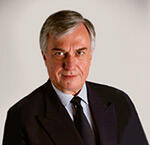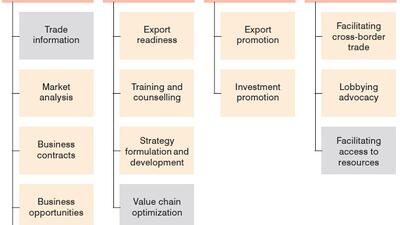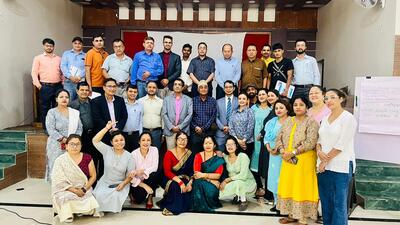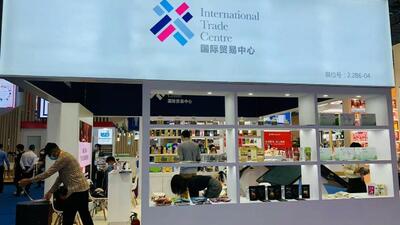How ITC came back into focus
As the Executive Director of the International Trade Centre (ITC) from 1994 to 2006, J. Denis Bélisle is the longest-serving head of the organization, for which he still has great affection and esteem.
To Bélisle, it is ITC’s intimate knowledge of the trade environment of developing and transition economies that makes it such a special organization. ‘Long before the international finance institutions and national development agencies discovered the power of trade to support sustainable development, ITC was addressing the question head-on,’ he says. ‘ITC, together with WTO and UNCTAD, forms the perfect team in international trade, with ITC best placed to support new and small exporters. It's credible, and it speaks their language.’
Bélisle, a Canadian former diplomat and business leader, joined ITC with the conviction that trade can generate growth for developing countries. ‘After 30 years addressing trade and aid questions in the public and private sectors and in developing and industrialized countries, I was sure that the job was tailor-made for me,’ he says.
When Bélisle joined ITC in 1994, he came to an organization where morale was low and the future uncertain, after a lengthy and difficult period. ‘At my first meeting with my then boss, WTO Director-General Peter Sutherland, I was told that ITC had to undergo "drastic" reforms,’ he says.
This view was not shared by everyone at ITC, but the agency’s high-performers welcomed the challenge, and a majority of staff backed the reforms with energy and enthusiasm, he recounts. ‘They believed that ITC was capable of better things,’ he says. ‘We studied the changing needs of our clients, adapted our ways of doing business, eliminated programmes that were only marginally useful, redeployed staff, created new tools and programmes, and embarked upon systematic collaboration with partners. It was not an easy period but, looking back, it was the major milestone during my tenure at ITC.’
Central to the reforms that Bélisle oversaw in the 1990s was the need for greater impact on the ground, in the countries were ITC was (and is) working. ‘We genuinely tried to make a difference, and many of our clients felt we succeeded,’ he says. ‘Experts have developed complex tools to measure the impact of development assistance. But regardless of their sophisticated answers, my personal impression is that we have to remain humble in claiming success.’
Still, Bélisle is adamant that ITC’s efforts have made a difference in getting thousands of entrepreneurs export-ready, and that bringing together movers and shakers of trade development – entrepreneurs, policymakers and trade negotiators – has been crucial.
Can ITC make an even bigger difference in the future? According to Bélisle, ITC has the potential to become the global reference for trade-related technical assistance. Moreover, he says, ITC could become the leader in trade intelligence and in the creation of trade-development tools and techniques urgently needed by developing and newly industrialized countries.
But Bélisle also sees challenges. ‘Bridging the gap between the public and private sectors and enhancing South-South trade will likely remain key factors for export from developing countries in the foreseeable future,’ he says. ‘This means working more closely with more trade practitioners and being attentive to the changing needs of clients,’ he says. ‘Continued support and collaboration with the public sector is important, but key to ITC’s continued success is an even closer relationship with the private sector.'
On the eve of ITC’s 50th anniversary, Bélisle also has some advice for the organization he led for 12 years. ‘Setting up an advisory group of private business from developing countries, for example, could be a way for the Executive Director to stay on top of the needs out there that could help ITC better respond,’ he says.












